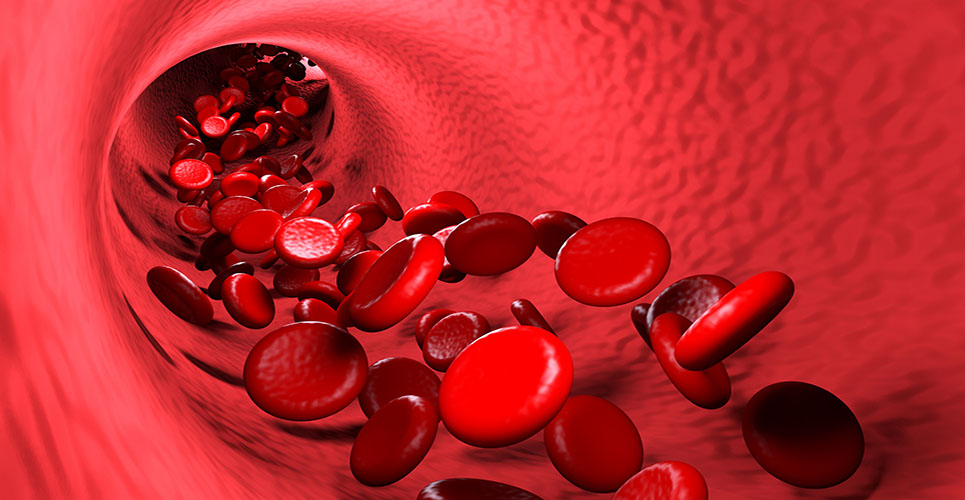teaser
Full publication of the Phase III EINSTEIN-DVT study confirmed that, for the first time since the introduction of warfarin 55 years ago, we have taken a step towards being able to potentially offer an oral single-drug approach – rivaroxaban – as an alternative to traditional standard treatment [a combination of low molecular weight heparin (LMWH) and warfarin] to patients with DVT.
When compared to current standard treatment, rivaroxaban demonstrated:
- Non-inferiority in terms of the primary efficacy outcome [defined as the cumulative incidence of symptomatic recurrent DVT and non-fatal or fatal pulmonary embolism (PE)]: 2.1% versus 3.0% (p <0.001 for non-inferiority)
- A comparable safety profile [principal safety outcome defined as a composite of major and non-major clinically relevant bleeding events]: 8.1% in both treatment groups, (p=0.77)
- A superior net clinical benefit [a pre-specified secondary outcome defined as the composite of the primary efficacy outcome plus major bleeding]: 2.9% versus 4.2% (HR of 0.67, CI: 0.47 – 0.95, p=0.03)
Full publication of the Phase III EINSTEIN-Extension study provides compelling evidence in extending treatment by an additional 6-12 months as it demonstrated that rivaroxaban significantly reduces the risk of a recurrent venous thromboembolism (VTE) over placebo by 82% (RRR) [1.3% (n=8) versus 7.1% (n=42), respectively, p <0.001] in patients who had previously been treated for a DVT or PE.
DVT is a significant health problem in the UK which affects approximately 60,000 people each year. Recurring VTE occur in approximately 21.5% of these people.
The current standard of care is an initial treatment with the combination of a fast-acting LMWH injectable anticoagulant and a Vitamin K Antagonist (VKA) such as warfarin, usually followed by warfarin mono-therapy.
However, there are drawbacks for both patients and clinicians with this regimen including the frequent blood test monitoring and numerous drug and food interactions associated with warfarin, which a single-drug approach using rivaroxaban could potentially overcome.
EINSTEIN is a global clinical development programme composed of three clinical studies in nearly 9,000 patients: EINSTEIN-DVT, EINSTEIN-PE and EINSTEIN-Extension.
Two of these studies enrolled patients with acute, symptomatic DVT (EINSTEIN-DVT) or PE (EINSTEIN-PE).
In these two trials, patients received oral rivaroxaban 15mg twice-daily for the first three weeks, followed by oral rivaroxaban 20mg once-daily, compared with initial enoxaparin treatment followed by a VKA.
The third study, EINSTEIN-Extension, evaluated the efficacy and safety of rivaroxaban compared to placebo in the secondary prevention of recurrent symptomatic venous blood clots.
The multinational Phase III EINSTEIN-DVT study investigated a new single-drug approach with rivaroxaban compared with standard therapy in a randomised, open-label non-inferiority study involving more than 3,400 patients with acute symptomatic DVT, but without any symptoms of PE.
Standard therapy for DVT currently includes two compounds: LMWH administered by subcutaneous injection, followed by a VKA, which requires regular monitoring of the prothrombin time, reported as the INR, to optimise efficacy and safety.
EINSTEIN-Extension compared the efficacy and safety of rivaroxaban to placebo in the secondary prevention of recurrent symptomatic venous blood clots in patients who had previously suffered a symptomatic DVT or PE, by extending preventative treatment by six or 12 months beyond a previously completed regimen of six to 12 months of therapy. There were 1,196 patients enrolled from 28 countries around the world.
Rivaroxaban is licensed in adult patients for VTE prevention after elective knee and hip replacement.
Rivaroxaban was invented in Bayer’s Wuppertal laboratories in Germany and is marketed in Europe by Bayer Schering Pharma.
It is approved in the European Union for the prevention of venous thromboembolism in adult patients undergoing elective hip or knee replacement surgery.
Additional approvals have been granted in other countries, including Australia, Canada, China, Mexico and Singapore.
To date, rivaroxaban has been launched in more than 75 countries around the world by Bayer Schering Pharma.

